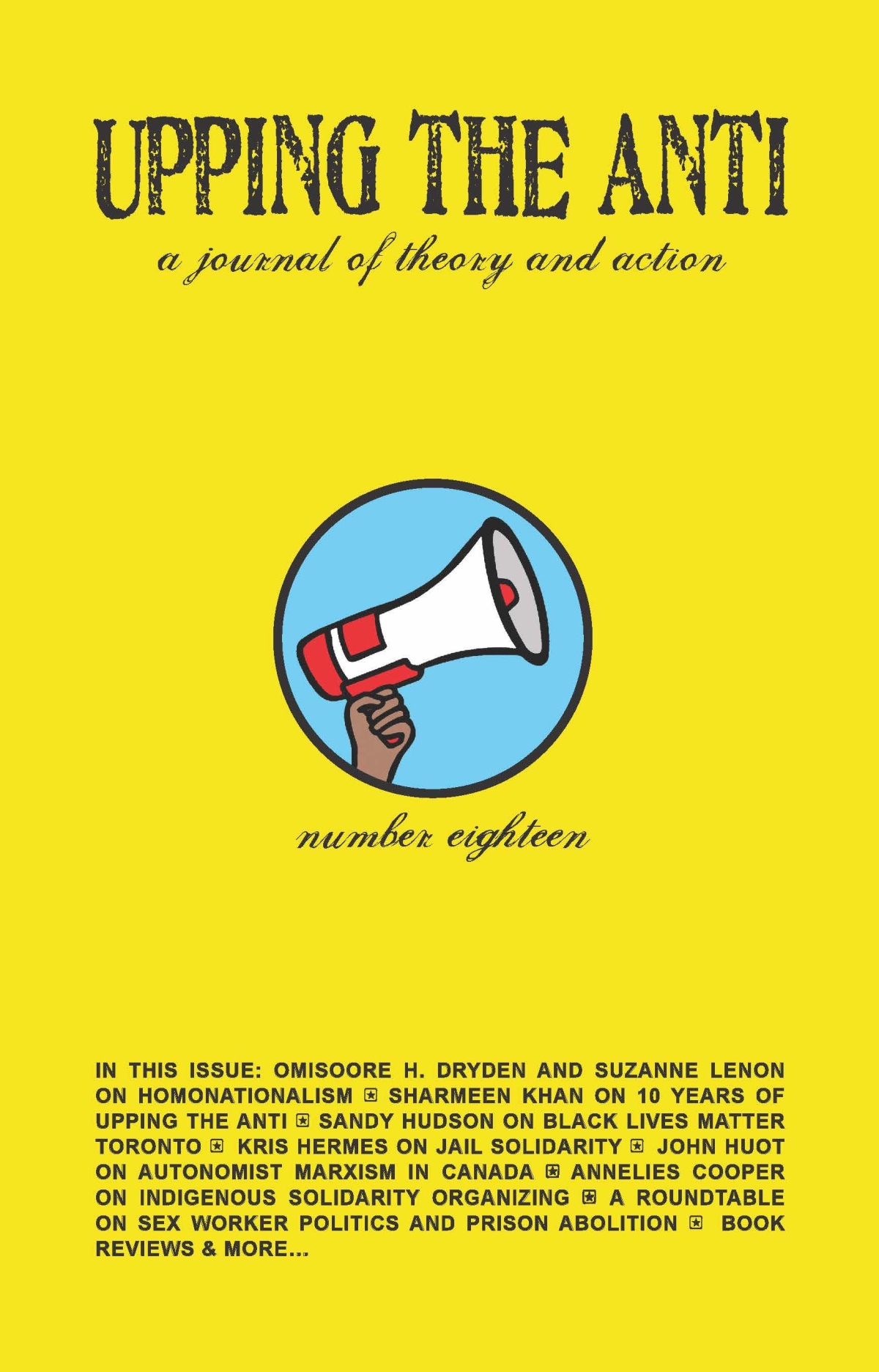Rojava and the Question of International Solidarity
Dear UTA,
Thank you very much for the invitation to respond to the editorial in Upping the Anti Issue 17 on internationalism and the politics of solidarity among our communities of resistance. The editorial starts by remembering Ali Mustafa on the first anniversary of his passing. I would also like to start by remembering Ali as someone whose life and work will always inspire us in our solidarity thoughts and practices.
Before beginning my response, I would like to send my gratitude to the UTA Editorial Collective for raising such an important issue that is not often debated in our communities. I found the editorial a timely intervention into our silence, inactivity, sometimes selective, or other times ‘problematic’ politics of solidarity, especially with the struggles in a much historically and politically complicated region that we know as the Middle East and North Africa. Since 2009, this region has been going through a massive transformation from the Green Movement in Iran, to the Arab Spring, and uprisings in Tahrir Square in Cairo, and continued resurgences in Istanbul. We have seen an incredible show of power of the people throughout the region. An awakening has been underway but a revolutionary situation is still not within reach. Much has changed in the Middle East, but none of what these movements were hoping to achieve has been realized. Instead, authoritarian regimes have strengthened their power, sectarian politics dominate the everyday, and imperialist powers continue to influence this region that is already so devastated by war and oppression.
The editorial defines internationalism as “supporting struggles against global capitalism and supporting peoples’ resistance for dignity and self-determination” (16). It goes on to explain that, “finding commonality amongst our differences of struggles and making these connections to discover our own common adversaries and using these connections to develop larger networks or organizations” is what internationalism is or should be about (16). I cannot agree more with this definition and the following arguments by the editorial. However, on the case of Syria you write that, “it is difficult to align support with one specific organization” (17). This is where I am reminded that, when it comes to the politics of solidarity, many of the responses to the question of “What is to be done?” are vague, conflicting, tepid, and more conservative than radical. Coming from years of organizing with community and student organizations in Toronto, I have always felt a wide gap between our imaginations, slogans, definitions, and our everyday practices of resistance and community building. We exercise our power – and yes, there is power – to decide what struggles are deemed ‘safer’ to support and which struggles we should avoid because of the controversies it might cause amonst ‘our’ allies and networks.
In reference to your editorial, I want to assert that yes, we do know what is going on in Syria, Iran, Turkey, Kurdistan, and beyond. We can develop our knowledge about that area if we are willing. By the conclusion of the editorial, Rojava (in Northern Syria) and Kobani are briefly mentioned with the anecdote that we need to speak out against the political oppression in Turkey. Yet, the Kurdish struggle for radical democracy and self-determination in Turkey as well as the Rojava Revolution in Syria, has unfortunately not received the attention and support it deserves from the community here in Toronto, despite having revolutionary ideals activists should support.
As a Kurd from the region, I have followed the Kurdish resistance closely and have tried to be a voice of their cause in Toronto. Since 2012, the mainly Kurdish populated region of Rojava has been experiencing a tremendous social and political transformation. Kurds, Arabs, and other ethnic and religious minorities have come together to establish a democratic system of self governance that grounds itself in grassroots organizing. It is inspired by global struggle, for autonomy and radical democracy such as those found in Chiapas. This revolution led by the Democratic Society Movement follows a decades long history of the Kurdish resistance in Turkey initiated by the Kurdistan Workers’ Party (PKK). This movement is inspired by Abdullah Ocalan, the imprisoned leader of the PKK, and his readings of revolutionary theorists such as Murray Bookchin. He believes that “in the Middle East, democracy cannot be imposed by the capitalist system and its imperial powers, as these only damage democracy.” Against these interventions, he proposes the idea of “democratic confederalism” in which democracy from below with a strong emphasis on gender liberation is practiced, and only communities of the region based on democratic principles of co-existence decide for their future. Rojava has strongly shown the viability of this idea, and it is in fact the place where many of our ideals are being materialized in everyday life.
If we want to develop a powerful alliance with the peoples’ struggle for justice, freedom, dignity, and self-determination in the Middle East, Rojava is a starting point. And let us not forget that our politics of solidarity is important for our own communities because it makes us stronger. The peoples’ struggles happening in Rojava are not waiting for us to decide. In Rojava, people have already answered the question, “What is to be done?” and they are working it out on the ground.
In Solidarity,
Sardar Sadi
Toronto, ON

